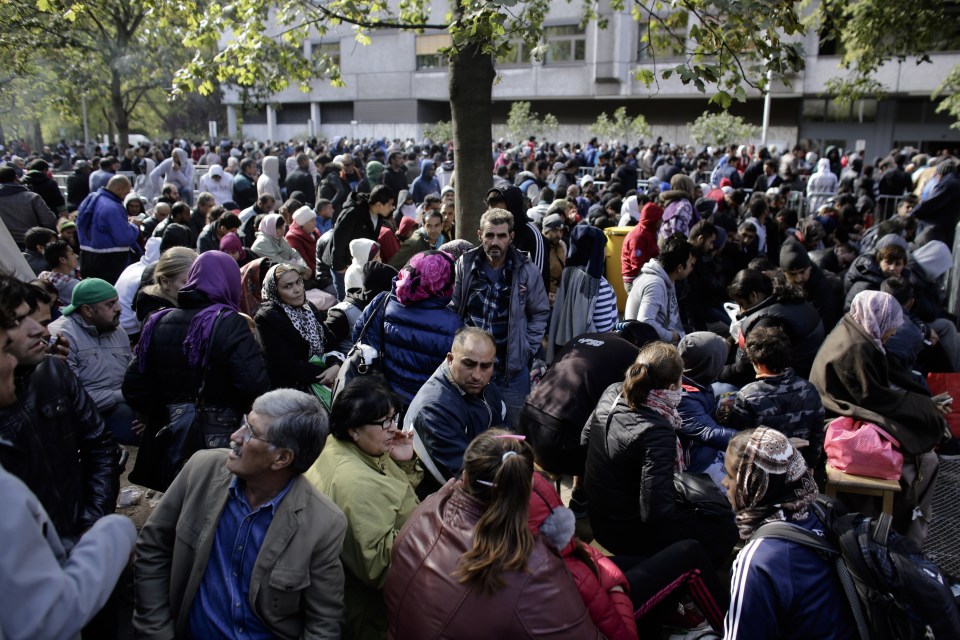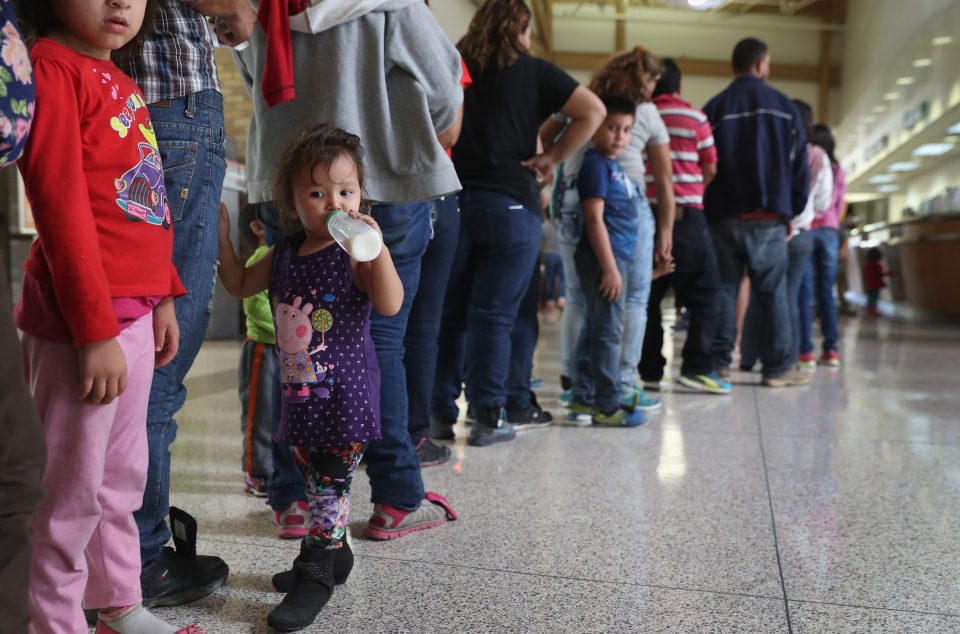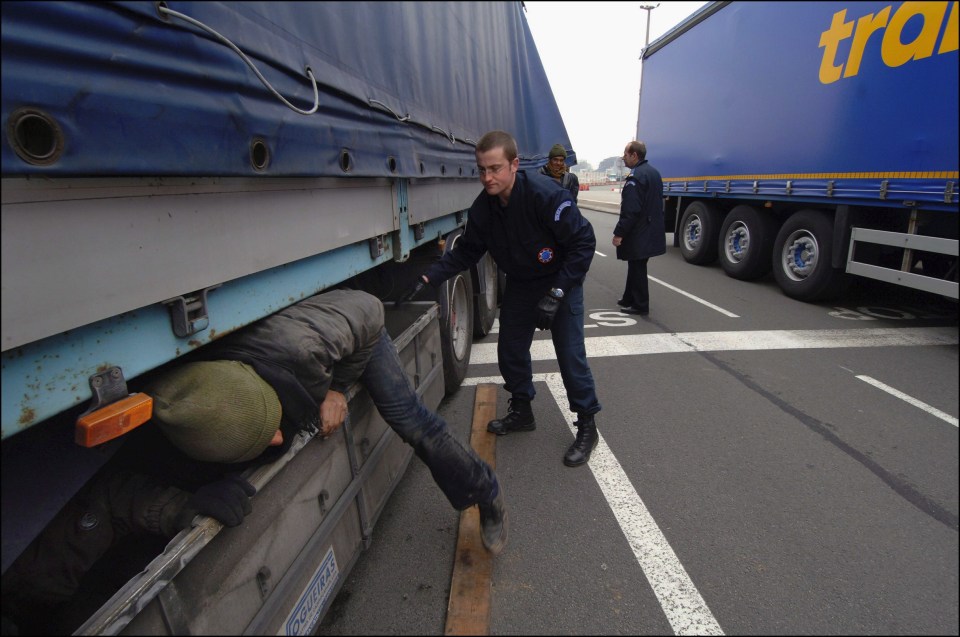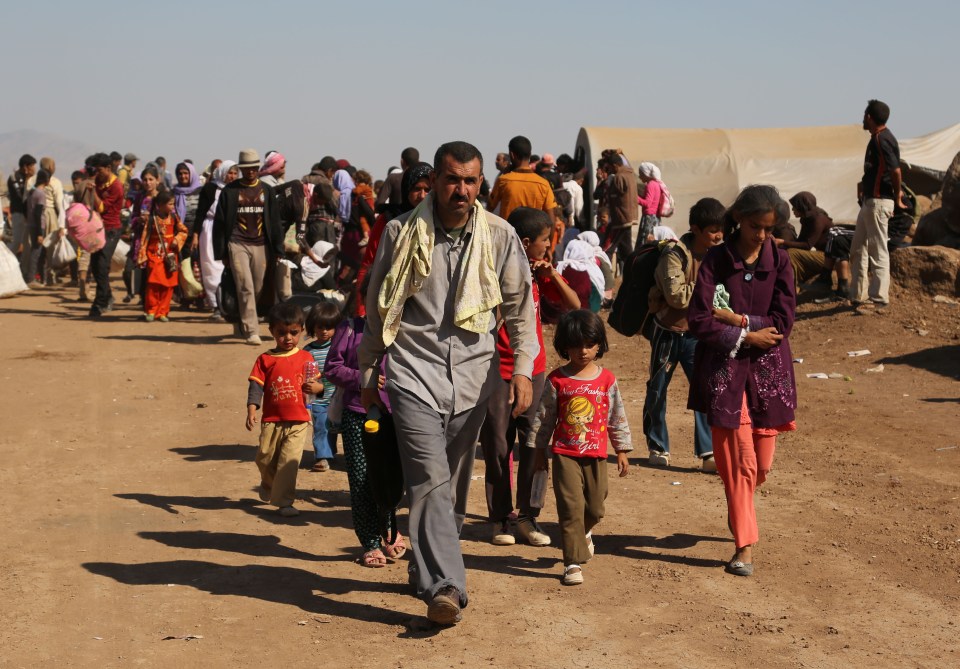Britain should be taking on more refugees… then training them to go back home
Unlike Germany, whose million migrants are ignored, Britain should give its refugees the skills to one day rebuild their home nations

SCHOOL is about to start again and Germany faces a moment of truth on the migration crisis.
The country is having to create 100,000 kindergarten places and deal with 200,000 extra secondary pupils this year.
A further 30,000 teachers are needed.
The full implications of Angela Merkel’s misplaced decision to allow in more than one million refugees and migrants are becoming clearer, and the hosts don’t like it.
In Berlin alone 41 sports halls are out of action because they are still being used as dormitories for people who fled the Middle East and Africa 18 months ago.
The result? It’s not just German parents who are grumbling. The national mood has curdled.
When Chancellor Merkel announced “Wir schaffen das!” (We can sort this out!) last summer, it was regarded as a triumph of the ethical over the fearful, an admirable act of statecraft.
The clarion call essentially invited into the country, and to Europe, every fugitive from war, drought and poverty.
It was a rational move, said Mrs Merkel’s supporters, because Germany would one day need a surge of young workers.
Yet the long-term effects of adapting society to this influx are going to be so radically destabilising that the once-welcome may become unwelcome.
This is not just Germany’s problem. It engulfs the whole of Europe. There are 21million people on the move in the world, many on Europe’s doorstep.
Far-Right movements naturally profit from the lack of clarity about who is coming and the blind panic that societies and welfare systems will be overwhelmed.
The chief problem, though, is the sense that newcomers are becoming a permanent fixture, assimilating into parts of the economy but rejecting broader social demands.
The tension is all too apparent in Germany’s municipal swimming pools, where girls refuse to go for fear of being groped and in libraries that are having to adjust to new arrivals who are functionally illiterate.
There is real concern in host nations that the political class has not built the democratic consensus needed for the changes ahead.
In what sense then was Mrs Merkel’s decision a moral one?
She offered shelter to the refugees but not the kind of confidence that allows them to believe in a long-term future in Germany.
The numbers of people taken in are so huge that refugees with mental health problems — traumatised first by war, then by years in degrading camps — are not being properly treated.
The Hazaras, a Persian minority persecuted in Afghanistan, find themselves in towns with Afghans and the bullying continues.
Mrs Merkel has ended up with a half-baked policy that makes refugees welcome — but only so long as they make themselves invisible.
It doesn’t have to be that way.
Take Fadumo Dayib, who fled Somalia as an illiterate young girl, arriving in Finland via Romania and Russia.
There she took two masters degrees (and another at Harvard) and is ready to return — as a candidate for president in a country that, for women, is one of the world’s most dangerous.
She says: “Finland gave me the skills I want to take back to my country.”
That’s what Britain should be doing: Training up people to be the new administrators, the new builders, the civically-minded middle classes of their home countries.
Britain is taking a limited number of refugees — 20,000 over five years plus 3,000 of the most vulnerable — and should do more.
But it is right not to mimic Mrs Merkel and turn these desperate people on the move into an indigestible lump.
To put the moral purpose back into our refugee policy, we must find what it means to offer refuge in the 21st Century.
It should entail a simple transaction: Britain will teach you English, a trade or allow you to go wherever your talents lead — but we want you to contribute to the reconstruction of your homeland.
An unsentimental contract. We do not demand that you love us or win Olympic gold medals for us like Mo Farah, another successful Somali immigrant.
All that is demanded is a readiness, informed and assisted by Britain, to help construct a modern, functioning society at home.
Britain already pays more than any other European Union country to support the refugee camps that neighbour Syria.
It would be a better use of taxpayers’ money if some of that cash were set aside to train refugees in carpentry, building skills, IT and nursing.
The reconstruction of Syria, after President Assad has gone and after IS has been banished, will demand a huge effort from us.
We can help, not just because it’s the right thing to do morally — helping people to help themselves — but because it’s in our interest that Syria stops being a magnet for jihadists.
RELATED STORIES
We should put our trust in refugees’ entrepreneurial spirit and their yearning for ancestral valleys.
After the Balkan wars of the 1990s, hundreds of thousands were drawn back to the motherland once the guns fell silent.
War refugees have grit. We, and they, should count on it.

















